The Three Poisons : Delusions of the Mind
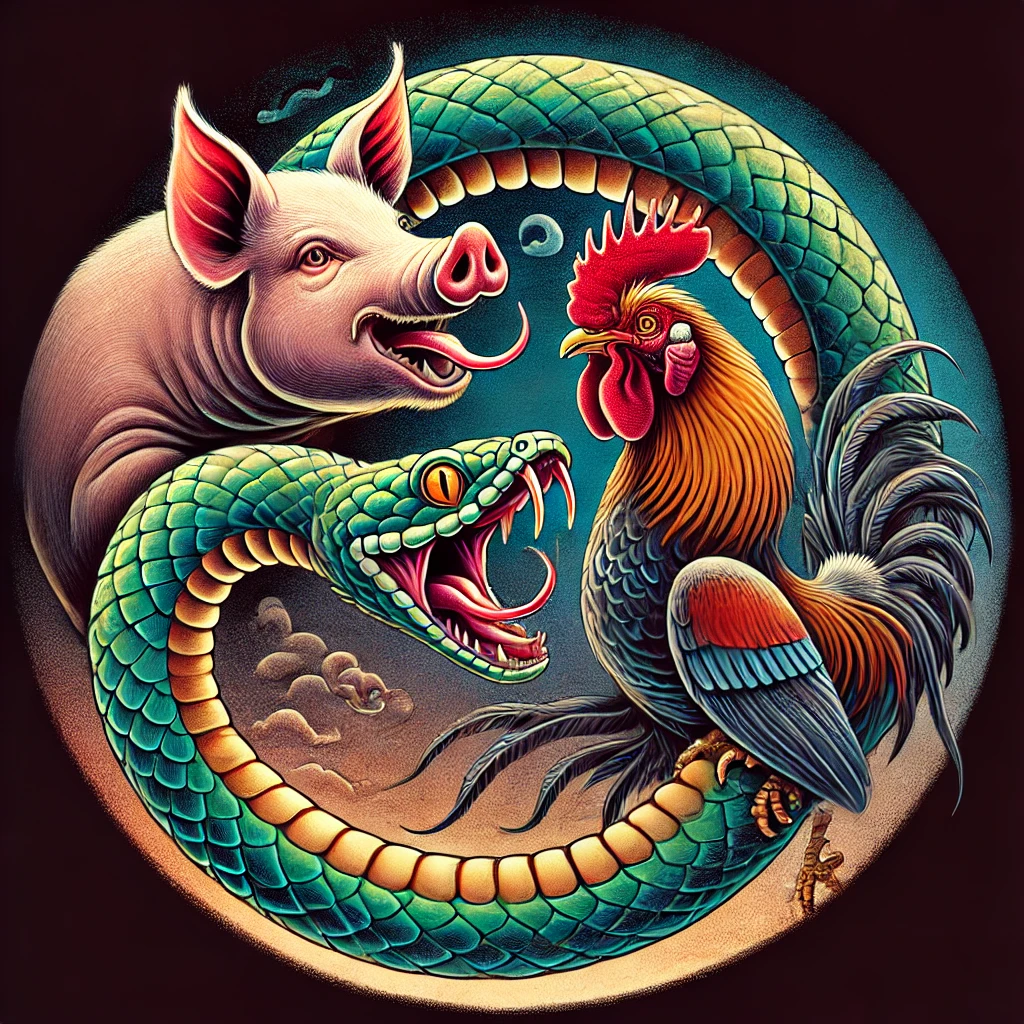
In our daily lives, it’s common to blame external circumstances for our unhappiness. We might think we’re suffering because we lack money, relationships, or recognition. However, the Buddha’s Second Noble Truth—the truth of the origin of suffering—teaches us that the root of our suffering lies not outside but within ourselves.
Our unhappiness arises from our own negative mental habits and confused perspectives : our delusions. Recognizing this shifts the focus from blaming external factors to examining our inner world.
Buddhist philosophy identifies three primary delusions, known as the Three Poisons: Ignorance, Attachment and Anger.
1. Ignorance
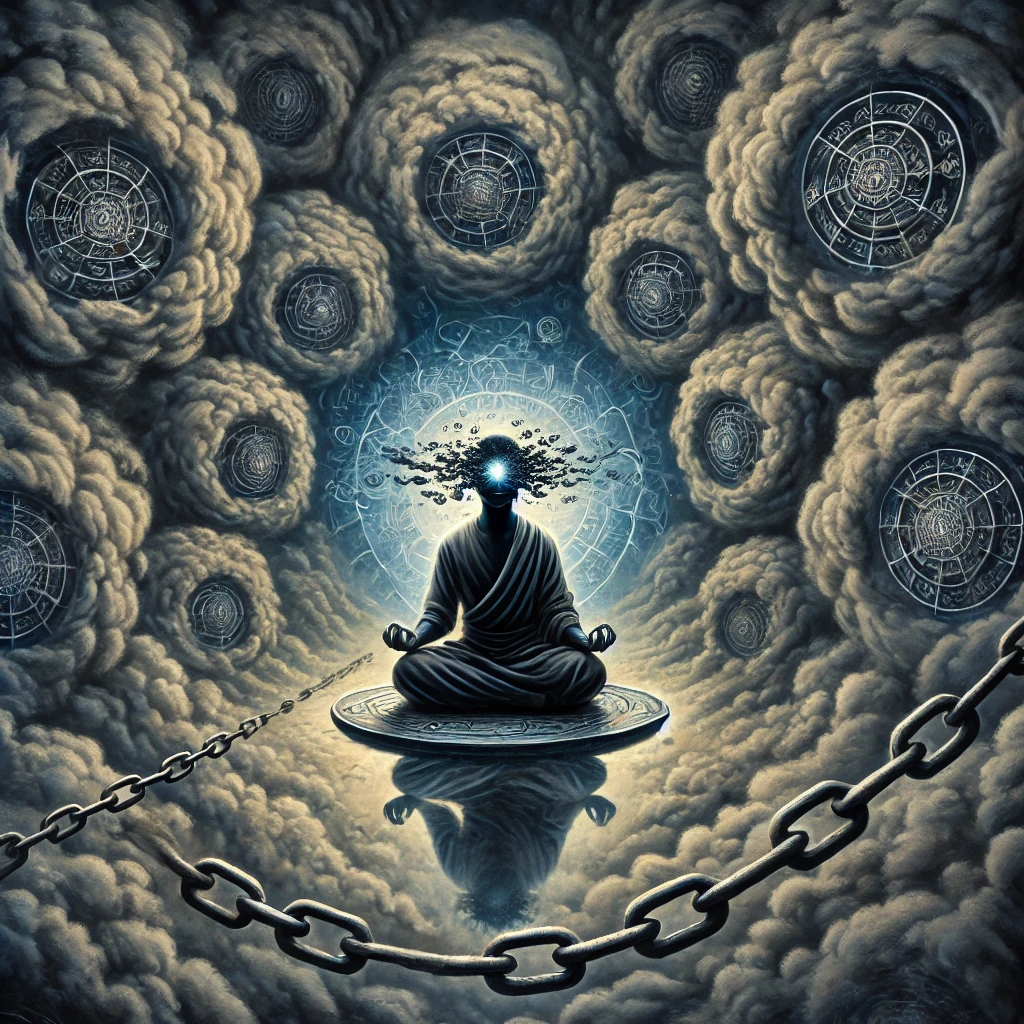
Definition
At the core of these delusions is ignorance, considered the main troublemaker that disturbs our peace of mind. Ignorance isn’t just a lack of information. It’s an active misunderstanding of reality—seeing things in a way that doesn’t align with how they truly are. This distorted perception leads us to make choices that cause suffering for ourselves and others. Ignorance manifests in three ways.
- By grasping at permanence : We tend to perceive things as stable and unchanging when, in reality, everything is impermanent. People age, relationships evolve, and material possessions deteriorate. By clinging to the idea of permanence, we set ourselves up for disappointment when things inevitably change.
- By seeking happiness in temporary pleasures : We often mistake fleeting pleasures for true happiness. Ignorance leads us to believe that external things—like wealth, status, or physical beauty—can provide lasting satisfaction. However, these are temporary and can’t fulfill our deeper needs.
- By believing in a self-existent “I” : We hold onto the notion of an independent, unchanging self. This solidified sense of “I” leads to ego-driven behaviors and separates us from others. For example when criticized, we might react defensively because we feel our core identity is being attacked.
2. Attachment
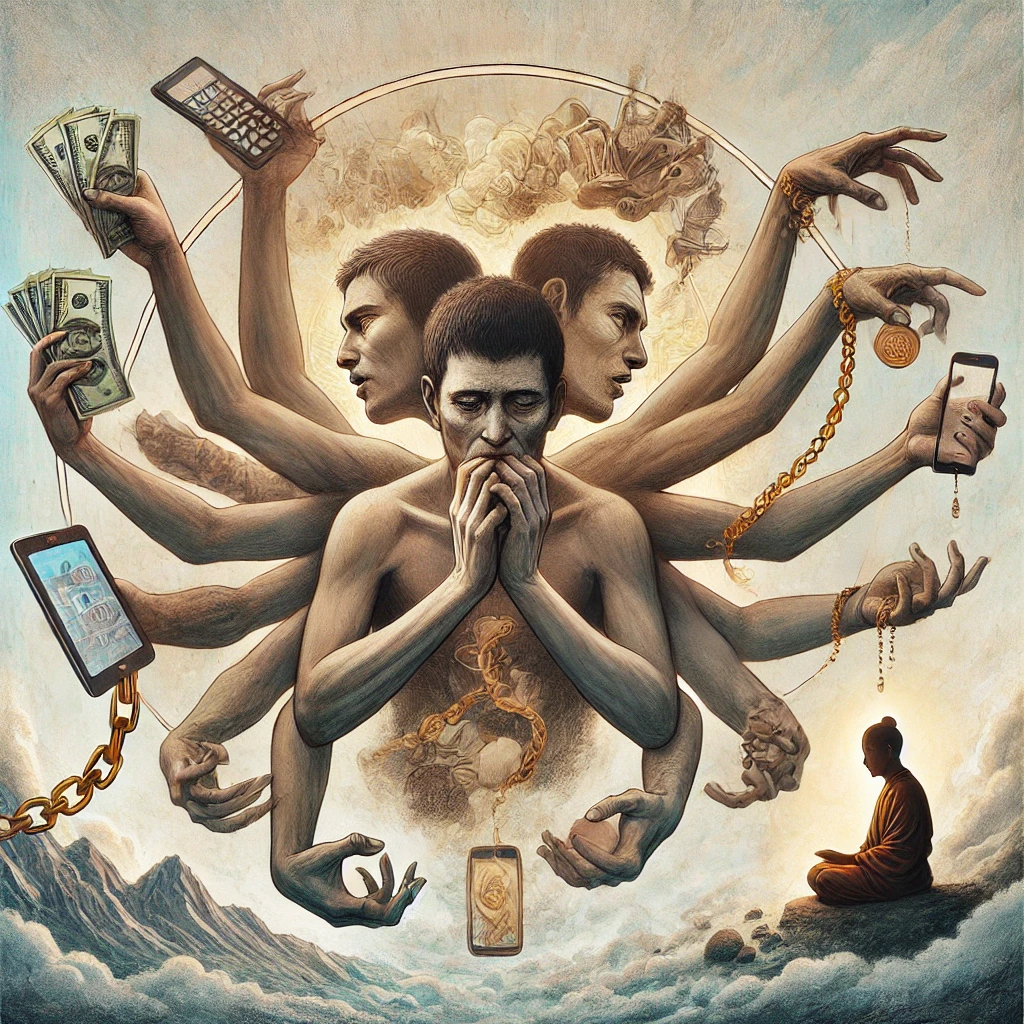
Definition
In modern psychology, attachment often refers to a deep, lasting emotional bond between two people, such as the essential connection between a child and their mother. This type of attachment is considered crucial for healthy development.
However, in Buddhism, attachment is defined differently. It is a mental tendency that sees something as inherently attractive, exaggerates its positive qualities, leading to a desire to possess and keep it. This form of attachment projects qualities onto objects or people that they don’t inherently possess, leading us to believe they are the source of our happiness.
The Cycle of Dissatisfaction
Attachment is driven by a basic sense of dissatisfaction. We constantly feel an inner void, a subtle longing that tells us we’re missing something. This leads us to seek fulfillment through external means—people, possessions, experiences—believing they will complete us. However, when we obtain what we desire, the satisfaction is often short-lived, and the cycle of craving begins anew.
Buddhism compares this pursuit as drinking saltwater when thirsty; it doesn’t quench our thirst but makes it worse. Following attachment only deepens our dissatisfaction, keeping us trapped in a relentless search for fulfillment that never truly satisfies.
The Illusion of Permanent Satisfaction
Our attachments often stem from the belief that people and things are permanent and unchanging. We hold unrealistic expectations that a relationship, a job, or a possession will provide lasting happiness. However, everything is impermanent and subject to change. When reality doesn’t align with our expectations, we experience frustration and suffering.
For instance, in romantic relationships, we might idealize our partners, overlooking their flaws and projecting qualities onto them that they may not possess. Over time, as the initial excitement fades, we begin to see them more realistically, leading to disappointment because they don’t match the idealized image we’ve created.
Attachment vs. Love
A common misconception is equating attachment with love. While they may feel similar, they are fundamentally different. Attachment is self-centered, seeking personal gratification and often leading to possessiveness and unrealistic expectations in relationships. It says, “I want you to make me happy.”
In contrast, true love in Buddhism is selfless and unconditional. It desires the happiness of the other person without expecting anything in return. Love says, “I want you to be happy,” whether or not it involves us.
3. Anger
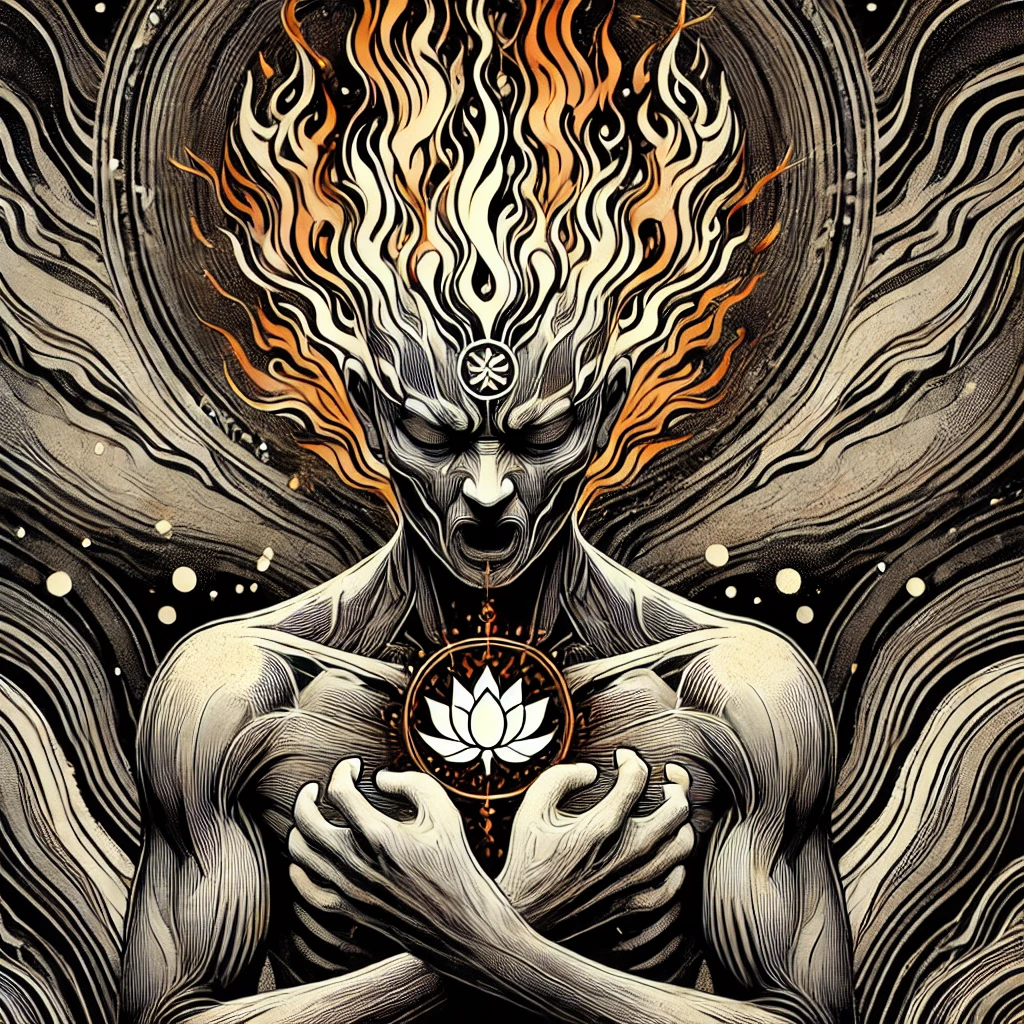
Definition
Anger—the last of the three poisons—is a mental factor that perceives an object as inherently unattractive, exaggerates its negative qualities, and wishes to eliminate or harm it. This emotion isn’t limited to explosive rage; it can appear subtly as irritation, annoyance, moodiness, or judgmental thoughts. Even passive behaviors like giving someone the silent treatment can be expressions of underlying anger.
How is Anger Created
At its core, anger is ego-driven. It stems from rigid expectations about how the world and people around us should behave according to our standards. We think: “Things should happen the way I want.”, “People should treat me as I deserve.”, “I am entitled to what I desire.”
When reality doesn’t align with these expectations, aversion arises. If left unchecked, this aversion intensifies into anger and even hatred.
Cognitive Fusion
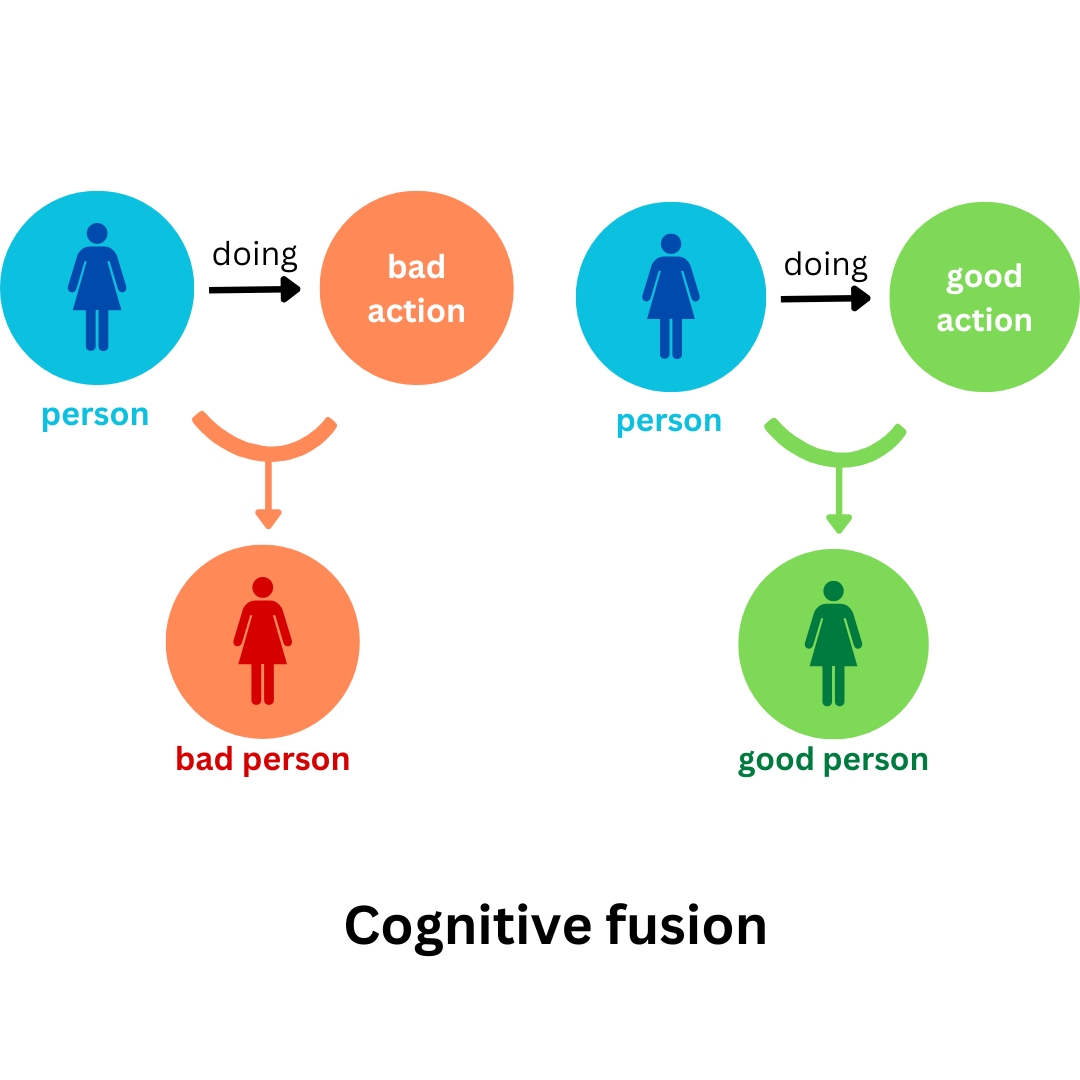
Cognitive fusion is the tendency to associate a person’s actions with their identity. For example, when someone behaves unkindly towards us, we might label them as an “unkind person,” rather than recognizing that a good person might have acted unkindly due to various factors.
Cognitive fusion leads to emotional judgments, meaning we react not just to the action but reject the person entirely. It also results conflict escalation, as viewing someone as inherently bad fuels ongoing tension and prevents reconciliation.
Why Anger is Harmful
While some might argue that anger provides the strength to overcome injustice or drive social change, Buddhism considers anger to be inherently destructive. Acting out of anger often provokes more anger in others, creating a cycle of negativity. Additionally, anger distorts our perception by exaggerating negative qualities, which prevents us from seeing the full picture. In moments of anger, we often lose our ability to make rational decisions, compromising our values and ethics. Furthermore, decisions made in anger can lead to actions we later regret, causing feelings of guilt and shame.
Anger vs. Forceful Compassion
There is a difference between anger and forceful compassion. Anger involves the desire to harm and is driven by exaggerated negative perceptions. In contrast, forceful compassion is motivated by a genuine wish to help, even if it involves strong or assertive actions. For example, a parent might sharply scold a child running into traffic—not out of anger, but out of deep concern for the child’s safety. The intention is to prevent harm, not to cause it.
Conclusion
In this article, we have explored the Three Poisons—ignorance, attachment, and anger—and how they contribute to dissatisfaction and unhappiness in our lives. These harmful mental states cloud our judgment and hinder our ability to experience true peace.
Fortunately, there are Three Antidotes we can cultivate to counteract these poisons: generosity, loving-kindness, and wisdom. By embracing these positive qualities, we can begin to purify our minds and alleviate our suffering.
In the next article, we’ll dive deeper into how cultivating wisdom and compassion can help us eradicating the Three Poisons, paving the way for lasting happiness and fulfillment.
DISCLAIMER : The information shared in this article are based on my personal experience from various Buddhist courses I attended in India and Nepal. I am not by any means an expert on the subject. If you notice any inaccuracies, please feel free to contact me or mention them in the comments.